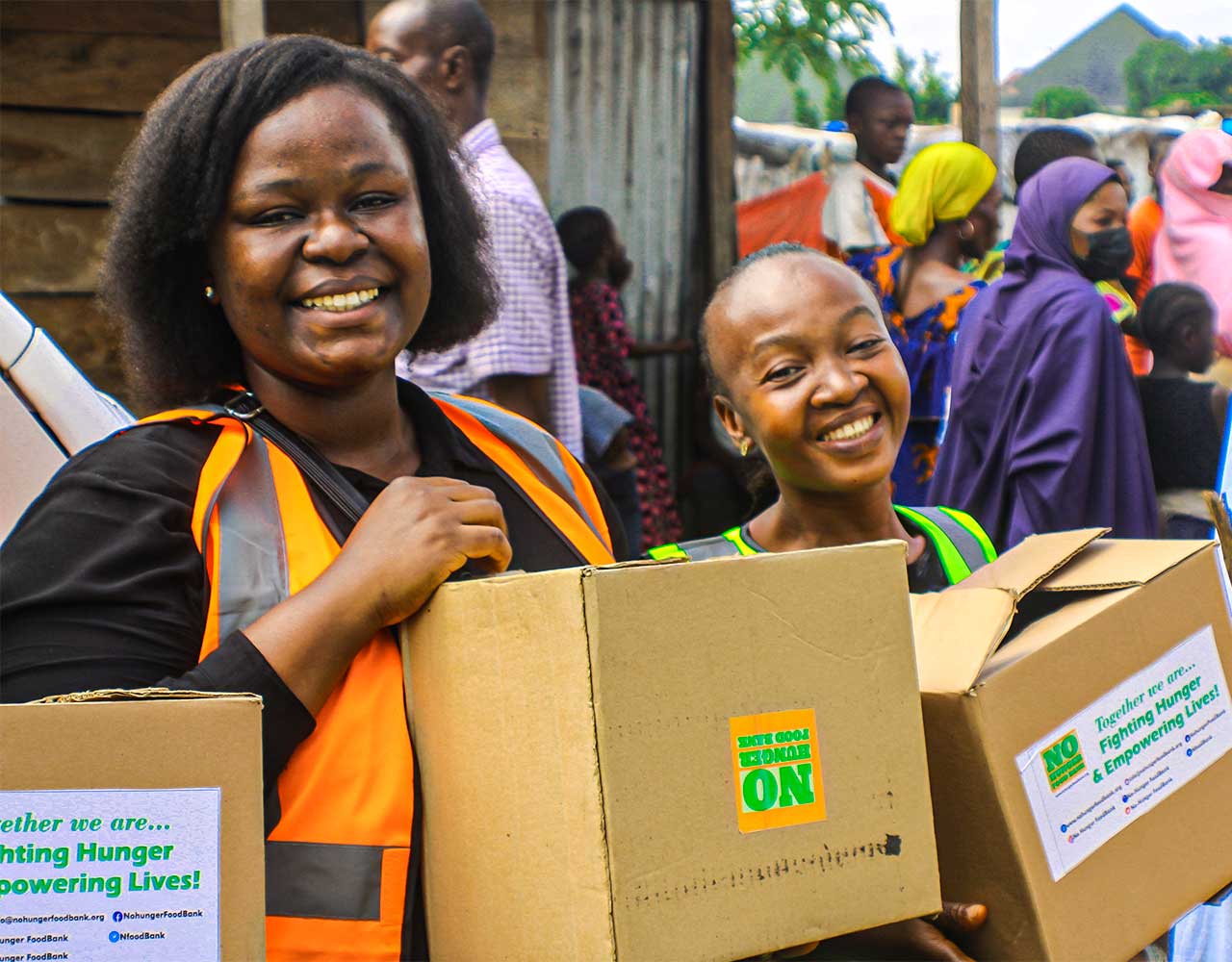Global poverty and hunger are issues that affect all of us. Almost a billion people live on less than $1 a day and approximately half of the world population.
serves the highest-need, underserved, hard-to-reach families by directly distributing food in pre-packed boxes or at farmers’ market-style settings. Focusing on highly demanded items like fruits and other fresh produce.
#NoHungerFoodBank provides assistance for malnourished children, less privileged, nursing mothers and pregnant women through Fast and flexible mobile pantry Programmes etc.
In addition to making tough choices between buying food and medicine, our aged people face unique medical and mobility challenges that put them at a greater risk of hunger. This program meets the specific needs of the aged by providing balanced nutritious meals at their convenience.
provide free snacks and meals to low-income kids from highest-need, underserved, hard-to-reach families.
Food waste is a bigger problem than many people realize. Nearly one-third of all food produced in the world is discarded or wasted for various reasons. That equates to nearly 1.3 billion tons every year.
alleviates child hunger by providing food to low-income children from highest-need, underserved, hard-to-reach families. Studies reveal that having convenient, consistent, access to healthy foods helps ensure that children never have to worry about their next meal, which in turns make them healthier and happier.
In other words, malnutrition refers to deficiencies, excesses or imbalances in a person’s intake of energy and/or nutrients. At NoHungerFoodBank is on a mission to end malnutrition in any form.
When disaster strikes, we provide emergency food and disaster relief supplies to families and communities following a disaster.

The No Hunger Food Bank’s (NHFB), objective are based on three strategic pillars - Food banking, Empowerment and Policy Support. NHFB deploys food banking models to source food while leveraging circularity and environmental sustainability principles to reduce food loss and waste on farms and at home.
-
Zero Hunger
-
Vulnerable Population Empowerment
-
Food Loss, Waste (FLW) reduction advocacy and campaign
-
Legislation Support
-
Hunger Eradication Policy
Must explain too you how all this mistaken idea of denouncing pleasures praising pain was born and we will give you complete account of the system the actual teachings of the great explorer.
-
NUTRITION: The most economically poor are also the most nutritionally poor. We aim to provide healthy meals, nutrition focused food items to individuals and families in need.
-
QUALITY:: we are passionately committed to excellence in service, products, operations and delivery.
-
PEOPLE: we work, learn and collaborate as teammates in an inclusive culture and also treat all people with respect, dignity, and courtesy.
-
STEWARDSHIP: we will deploy the most optimal tools in resources allocation, with high level of accountability to the public and great concern for the environment.
-
INTEGRITY: we will be fair, hones and transparent in all our communications, transactions, and relationships with others.
-
COLLABORATION: we are heartily appreciative of our all our national and community partners, donors, volunteers, advisors, trustees and employees for their unadulterated support and commitment.
Must explain too you how all this mistaken idea of denouncing pleasures praising pain was born and we will give you complete account of the system the actual teachings of the great explorer.
-
Research and Innovation: No hunger Food Bank’s research and innovation work focuses on the prevention, treatment, and drivers of undernutrition.
-
Raise Fund for School Meals: School feeding programmes help keep children in school and create markets for poor food farmers
-
Raise Fund for internally displaced persons (IDPs): There are 740 children living at the internally displaced persons (IDP) camp, Durumi, Abuja, Nigeria.
-
Education for Poor Children :All children, no matter where they live or what their circumstances, have the right to quality education.
-
Promoting The Rights of Children to nutrition: According to the United Nations Children’s Fund, child hunger in Nigeria is declining by about 3 percent per year.
















